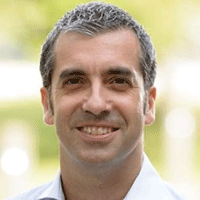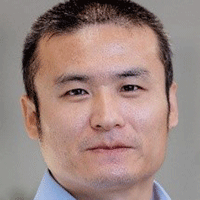The hydrogen internal combustion engine (H2ICE) is fast evolving in recent years as an emerging technology in several roadmaps across the transportation and industrial sectors. As it can be developed from traditional combustion engines and has good tolerance to the impurity in the hydrogen feed gas, H2ICE can serve as an important bridge technology in the transition towards a future characterized by a mix of electrification and sustainable net-zero carbon fuels. Compared to conventional liquid and gaseous fuels, hydrogen has a unique set of fuel properties, thereby presenting the need to gain a fundamental understanding of the implications of these properties and apply the learnings for tailored engine combustion system architecture selection and development. For the same reasons, the computational analysis of H2ICEs will require improved or novel models that will have to be disseminated and implemented into leading engine simulation software.
In this webinar, we will start with a discussion of hydrogen's unique combustion properties, followed by a review of the current technology landscape. We will then speak about the key aspects in engine combustion system development involving fuel injection, fuel-air mixture formation, flame development and propagation, and abnormal combustion events (pre-ignition and knock). Next, recent progress in the computational modeling of H2ICEs will be reviewed and future computational needs will be identified and discussed.
Learn More and View

Speaker
Riccardo Scarcelli
Argonne National Laboratory
Dr. Riccardo Scarcelli leads the Multi-Physics Engine Computations group of the Advanced Propulsion and Power Department at Argonne National Laboratory. His background is on computational fluid dynamics (CFD) applied to the multi-dimensional modeling of internal combustion engines (ICEs).
Dr. Scarcelli earned a Ph.D. on Engineering of Energy-Environment from the University of Rome "Tor Vergata" in 2008 and joined Argonne as a Postdoctoral Researcher at the end of the same year. He was promoted to become a Research Scientist in 2012. In the last 10+ years, Dr. Scarcelli has been leading several research projects funded by the U.S. Department of Energy with a focus on modeling high-efficiency ICEs, advanced ignition systems, and low-carbon fuels. Today, his research interests encompass a wide range of sectors, including internal combustion engines for propulsion and power applications, industrial decarbonization, hydrogen combustion and safety, advanced plasma technologies, etc.
Dr. Scarcelli has been conducting several professional activities and has been very active within the Society of Automotive Engineering (SAE) and the American Society of Mechanical Engineering (ASME) networks. He currently serves as the Chair of the SAE Engine Combustion Committee, and as the Chair of the ASME ICE Division Honors and Awards. In 2021, Dr. Scarcelli was elected as a SAE Fellow and as a Distinguished Associate of the Internal Combustion Engine Division (ICED) of ASM

Speaker
Yu Zhang
Cummins Inc.
Yu Zhang is currently a Technical Advisor in Technical Strategy and Integration at Cummins’ Engine Business Unit. In this capacity, he utilizes advanced analytical and experimental approaches to drive sound decisions and develop technical contents that lead to highly efficient, environmentally friendly, and competitive propulsion system products in support of Cummins' Destination Zero strategy.
Prior to joining Cummins, Yu worked at Aramco's Research Center in Detroit for over 8 years, conducting fuels and engine combustion research, leading the heavy-duty gasoline compression ignition project, and managing the Propulsion Technology Development team. Previously, Yu also held positions at General Motors, FEV, and Navistar in engine combustion system technology development.
Yu serves on the editorial board for several journals including an Associate Editor position for ASME Journal of Energy Resources Technology. He also chairs multiple sessions at ASME and SAE events. Yu obtained his PhD in combustion research from Penn State University in 2010.

Moderator
Kelly Senecal
Convergent Science
Dr. Kelly Senecal is a co-founder and owner of Convergent Science and one of the original developers of CONVERGE, an industry-leading computational fluid dynamics software. He is a visiting professor at the University of Oxford, an adjunct professor at the University of Wisconsin-Madison, and a co-founder and director of the Computational Chemistry Consortium (C3). Dr. Senecal is a Fellow of the Society of Automotive Engineers (SAE) and the American Society of Mechanical Engineers (ASME). He is a member of the executive committee of the ASME Internal Combustion Engine Division, a member of the board of advisors for the Central States Section of the Combustion Institute, and the 2019 recipient of the ASME ICE Award.
Dr. Senecal has long been an advocate of creating cleaner propulsion systems, with a particular focus on using CFD and HPC to enable faster design. Starting with his TEDx talk in late 2016, he has promoted a diverse mix of transportation technologies through invited talks, articles, and social media. Dr. Senecal is co-author of the new book Racing Toward Zero: The Untold Story of Driving Green, winner of the 2022 Independent Press Award for Environment.

Webinar Organizer
Yuanjiang Pei
Aramco Americas
Dr. Yuanjiang Pei leads the Computational Modeling Team at the Aramco Americas’ Detroit Research Center. His team focuses on innovating and developing advanced engine combustion concepts and low climate impact fuels using state-of-the-art simulation tools. He recently initiated an industry-focused consortium called, IMPACT (Initiative for Modeling Propulsion and Carbon-neutral Transportation, to develop accelerated virtual engine and fuel methods for sustainable transport technologies. He joined Aramco in late 2015 after previously working at Argonne National Laboratory and Delphi.
Pei is actively involved in the organization of several international conferences, serving both Society of Automotive Engineers (SAE) and American Society of Mechanical Engineers (ASME). He was presented with numerous prestigious awards, including the HPCwire Award four years in a row and 2019 ASME Chairman’s Distinguished Service Award. Pei received his PhD in Mechanical Engineering from The University of New South Wales.